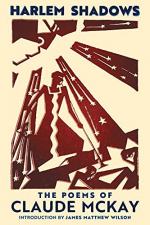
|
| Name: _________________________ | Period: ___________________ |
This test consists of 5 short answer questions, 8 short essay questions, and 1 (of 3) essay topics.
Short Answer Questions
1. What does the word "shod" in line 12 refer to?
2. In lines 2 and 3, the expression "when the night lets fall/ Its veil" is an example of which technique?
3. Whose presence is implied in "To bend and barter at desire's call" (line 4)?
4. Which line most clearly echoes the tension between "little girls" (line 5) and "prowling" (line 6)?
5. What color does the speaker assign to the sex workers' feet?
Short Essay Questions
1. Describe the form of this poem.
2. Where is Harlem and why is it significant to the meaning of this poem?
3. What indications does the speaker give that he feels the sex workers' choices indicate something about all Black people in America?
4. What does the poem conclude is the cause of the women's choice to pursue sex work?
5. How does the use of the word "prowling" contrast with the poem's previous descriptions of the women?
6. How does McKay convey the idea that these women are sex workers?
7. How does the second stanza set up a contrast between dark and light?
8. What is the poem's first image, and how does it set a tone for the rest of the poem?
Essay Topics
Write an essay for ONE of the following topics:
Essay Topic 1
Some might argue that McKay's use of traditional meter and rhyme is a kind of prison for his ideas, forcing them into rigid forms that are no longer necessary in the Modern era. But other critics have argued that McKay uses these traditional techniques as a kind of clever mask--his poems have the presentation of the traditional British poetry he studied in school, but this traditional presentation masks revolutionary ideas. In the case of "Harlem Shadows," which perspective do you find more accurate? Write an essay that takes a position on the effectiveness of the traditional rhyme and meter in the poem, making clear whether or not it serves a useful function as a way to make McKay's ideas more palatable to audiences outside of his own Black community. Support your arguments with both quoted and paraphrased evidence from both poems, and be sure to cite all evidence--including any outside sources you may choose to consult--in MLA format.
Essay Topic 2
What is the significance of McKay's use of the word "brown" to describe his race? How does this separate the racial idea of "Blackness" from the way dark is being used in the poem? How does using the color white to refer to snow but never using the word "black" to refer to any of the dark things in the poem function in the same way? Write an essay in which you show how McKay is able to use traditional literary symbolism of dark and light/black and white without implying that Blackness in racial terms is associated with any of the negative qualities attributed to darkness or the color black in literature. Support your observations with both quoted and paraphrased evidence drawn from throughout the poem, and be sure to cite quoted evidence in MLA format.
Essay Topic 3
In "Harlem Shadows," how does the personification in the first stanza create an aura of sympathy around the sex workers' situation? Does that sympathy continue throughout the poem? What feelings are attributed to the women? Are their voices ever heard? How is the choice to attribute feelings to them and not let them speak for themselves consistent with the purpose of the personification in the first stanza? How do other techniques, like antithesis, metonymy, synecdoche, diction, imagery, and symbolism work together with that personification to remove agency from the sex workers? How does this loss of agency support the poem's meaning? Write an essay in which you consider how McKay uses personification and other rhetorical devices to create a unified picture of the sex workers as more object than subject. Use both quoted and paraphrased evidence to support your claims, making sure to cite quoted evidence in MLA format.
|
This section contains 1,071 words (approx. 4 pages at 300 words per page) |

|




